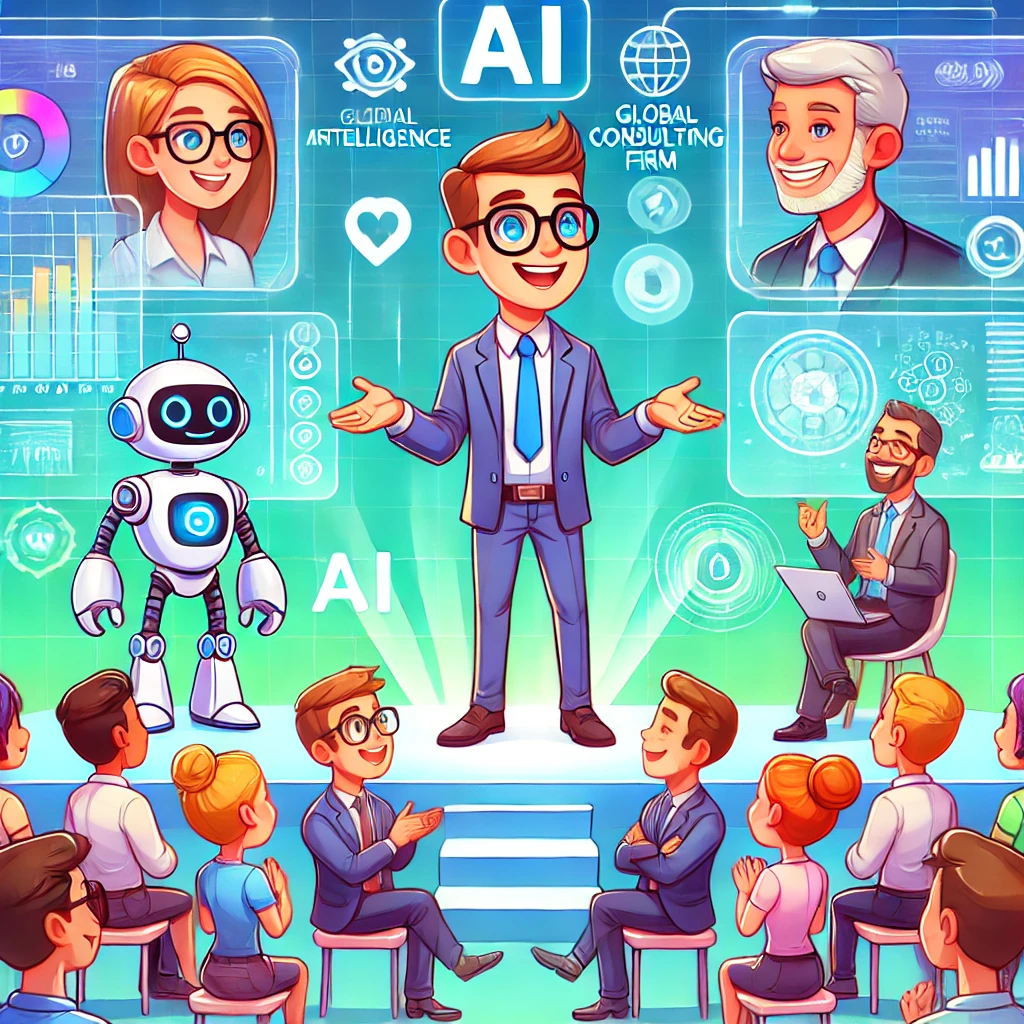The transformative potential of Artificial Intelligence (AI) is a topic that consistently captures the attention of thought leaders, industry experts, and businesses worldwide. In a recent exploration of AI’s development and impact, Reid Hoffman, co-founder of LinkedIn, partnered with McKinsey to delve into this dynamic field. This learning journey unveils key insights about AI’s role in reshaping industries and how businesses can strategically position themselves for success in an AI-driven future.
The Dynamic Landscape of AI
As AI continues to evolve, it becomes crucial for organizations to adapt to its rapid advancements. Reid Hoffman, with his extensive experience in the tech industry and partnership with McKinsey, sheds light on current AI trends and their potential implications for various sectors. Here are some key takeaways from their exploration:
- AI as a Growth Catalyst: Organizations that successfully integrate AI stand to gain significant competitive advantages. AI’s ability to streamline operations, enhance customer experiences, and drive innovation is playing a pivotal role in business growth.
- Ethical Considerations: As the adoption of AI technologies increases, so do concerns surrounding ethical practices. Ensuring data privacy, preventing biased algorithms, and maintaining transparency are challenges that need to be addressed proactively.
Reid Hoffman’s Vision for AI
Reid Hoffman, an influential figure in the technology space, brings a unique perspective to the discussion surrounding AI. His insights, accompanied by data and research from McKinsey, emphasize key strategic areas that organizations should focus on when embracing AI:
- Scalability: The potential of AI goes beyond automating routine tasks. It offers opportunities for scaling operations efficiently. Businesses should invest in AI systems that can keep pace with evolving demands and adapt to future technology shifts.
- Collaboration: Success in the AI era relies heavily on collaboration across different domains. Research and development, data science, and other fields demand interdisciplinary approaches for AI solutions to be effective.
- Continuous Learning and Adaptation: The learning curve in AI is constant. Organizations must foster a culture of continuous education to keep up with technological advancements and integrate them effectively.
Navigating Sector-Specific Challenges
While AI holds promise for many industries, it also presents distinct challenges and opportunities specific to each sector. McKinsey’s research reveals strategic insights and recommendations for key sectors, helping them harness the power of AI:
Healthcare
- AI in Diagnostics and Treatment: AI technologies are transforming patient care by improving diagnostic accuracy and personalizing treatment plans. Machine learning models can analyze vast datasets to identify patterns often missed by human practitioners.
- Operational Efficiency: AI-driven systems streamline hospital operations, resource allocation, and patient management, ultimately enhancing healthcare delivery and reducing costs.
Financial Services
- Fraud Detection and Risk Management: AI algorithms can quickly identify anomalies and potential fraudulent activities, enhancing security measures and mitigating risks within financial institutions.
- Customer Experience Transformation: AI-powered chatbots and personalized recommendations revolutionize customer interactions, providing efficient and tailored services.
Retail
- Customer Insights and Personalization: AI enables retailers to analyze consumer data and preferences, delivering personalized experiences that drive customer loyalty and engagement.
- Supply Chain Optimization: AI can optimize inventory management and logistics, ensuring products are available when and where they are needed, minimizing costs and maximizing efficiency.
Strategic Recommendations for AI Integration
To effectively leverage AI, organizations must follow a strategic approach. Drawing on insights from Reid Hoffman and McKinsey’s journey, businesses should consider the following recommendations:
- Invest in AI Talent: Building a skilled workforce equipped with AI expertise is crucial for successful implementation. Companies should prioritize hiring and training professionals with a strong foundation in AI and data analytics.
- Leverage Data Effectively: Data is the backbone of AI solutions. Organizations need to develop robust data management strategies that ensure data quality, security, and accessibility for AI systems.
- Cultivate a Culture of Innovation: Encouraging a mindset of experimentation and innovation fosters an environment where AI can thrive. Businesses should empower employees to explore AI-driven solutions and iterate quickly.
- Ensure Ethical AI Practices: Establishing frameworks for ethical AI use helps mitigate risks related to bias, privacy, and accountability, ensuring AI implementations align with organizational values and regulations.
The Future of AI: An Exciting Yet Challenging Journey
The journey into AI is both exciting and challenging, with opportunities for transformative impacts across industries. By leveraging insights from thought leaders like Reid Hoffman and the comprehensive research conducted by McKinsey, organizations can navigate this landscape strategically and harness AI’s full potential.
As AI continues to advance, the need for continuous learning, ethical practices, and collaboration will be more critical than ever. Embracing these principles can position businesses at the forefront of AI-driven innovation, ensuring they remain competitive in the future of work and technology.
In conclusion, the insights shared by Reid Hoffman and McKinsey emphasize the importance of strategic planning, ethical considerations, and a forward-thinking mindset in successfully navigating the complex realm of AI. As businesses embark on their AI journeys, these principles will serve as guiding beacons, illuminating the path to sustainable growth and innovation.
“`




